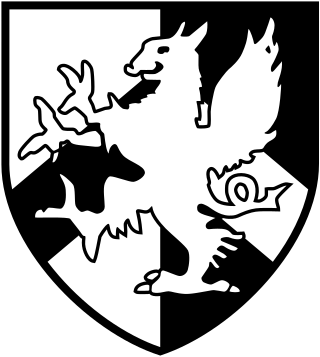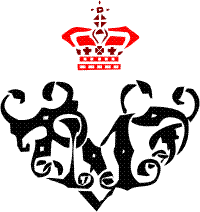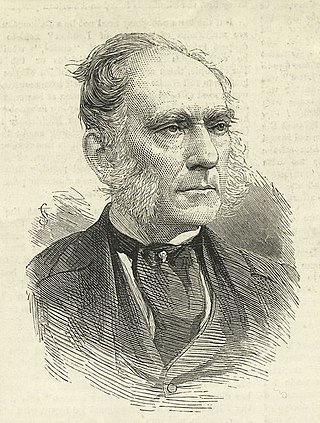 | |
| Formation | 1773 |
|---|---|
The Medical Society of London is one of the oldest surviving medical societies (being organisations of voluntary association, rather than regulation or training) in the United Kingdom.
 | |
| Formation | 1773 |
|---|---|
The Medical Society of London is one of the oldest surviving medical societies (being organisations of voluntary association, rather than regulation or training) in the United Kingdom.
It was founded in 1773 by the Quaker physician and philanthropist John Coakley Lettsome for physicians, surgeons and apothecaries who met to exchange medical news and confer about difficult cases. [1] Lettsome himself served as president of the new society in 1775–1776, 1784–1785, 1809–1811 and 1813–1815.
James Sims was president from 1786 to 1808 and during his long term of office some members of the society, led by William Saunders, became so offended by his autocratic style that in 1805 26 of them formed themselves into a new medical society, the Medical and Chirurgical Society of London, which later merged with other medical specialist societies to form the Royal Society of Medicine. [2]
The Society's wide appeal in the eighteenth century, the possession of a valuable library (originally purchased from Sims) and freehold property (donated by Lettsome) helped to ensure the society's success at that time. [3] Originally based in the City of London, it moved in 1873 to its present location in Lettsom House, Chandos Street, near Cavendish Square in the heart of London's medical community. This early 19th-century building was originally owned by the Earl of Gainsborough, and is now also home to several related societies who share the facilities. [4] The library has since been purchased by the Wellcome Trust. [5]
The Lettsomian lecture is delivered annually by a fellow of the society.
The Fothergillian gold medal, [6] named in honour of physician John Fothergill, Lettsome's patron, is awarded every three years in consultation with the Royal College of Physicians (to be awarded every five years from 2010). The present prize, founded in 1824, is funded by the will of Anthony Fothergill and prior to 1888 was awarded annually. The original award, sponsored by Lettsome, was introduced in 1787 and awarded until 1803.
Source: Source (1787–1902):[ citation needed ]
After the somewhat autocratic 22-year presidency of James Sims a motion was passed in 1805 that :"'No gentlemen be eligible to the office of President or Vice-president for more than two years in succession." The Presidents are listed below with their year of election to the position.
Source (1773–1902): [7]

Barts and The London School of Medicine and Dentistry, commonly known as Barts or BL, is a medical and dental school in London, England. The school is part of Queen Mary University of London, a constituent college of the federal University of London, and the United Hospitals. It was formed in 1995 by the merger of the London Hospital Medical College and the Medical College of St Bartholomew's Hospital.
The Royal Medical and Chirurgical Society of London (RMCS), created in 1805 as the Medical and Chirurgical Society of London, was a learned society of physicians and surgeons, that received a Royal charter in 1834, and a supplement charter in 1907 to create the newly merged Royal Society of Medicine.
Physician to the King is a title held by physicians of the Medical Household of the Sovereign of the United Kingdom. Part of the Royal Household, the Medical Household includes physicians, who treat general conditions, and extra physicians, specialists who are brought in as required.

Sir Benjamin Ward Richardson was a British physician, anaesthetist, physiologist, sanitarian, and a prolific writer on medical history. He was the recipient of the Fothergill gold medal, awarded by the Medical Society of London in 1854 and of the Astley Cooper triennial prize for an essay in physiology.

The Croonian Medal and Lecture is a prestigious award, a medal, and lecture given at the invitation of the Royal Society and the Royal College of Physicians.

John Coakley Lettsom FRS was an English physician and philanthropist born on Little Jost Van Dyke in the British Virgin Islands into an early Quaker settlement. The son of a West Indian planter and an Irish mother, he grew up to be an abolitionist. He founded the Medical Society of London in 1773, convinced that a combined membership of physicians, surgeons and apothecaries would prove productive. As the oldest such in the United Kingdom, it is housed in London's medical community at Lettsome House, Chandos Street, near Cavendish Square. Lettsom was its mainstay, as founder, president and benefactor.

The Royal Medical Society (RMS) is a society run by students at the University of Edinburgh Medical School, Scotland. It claims to be the oldest medical society in the United Kingdom although this claim is also made by the earlier London-based Society of Apothecaries (1617). The current President of the 286th session is fourth year medical student Miss Prithi Natarajan. The RMS is a professional society engaged in the advancement of medical knowledge and provision of assistance to medical students and professionals.

Sir William Henry Broadbent, 1st Baronet was an English neurologist who was a leading British authority in the field of cardiology and neurology. He also performed research involving diseases such as tuberculosis and cancer. In 1881 he was elected President of the London Medical Society and in 1887 President of the Clinical Society of London. Broadbent was a Physician-Extraordinary to Queen Victoria and Physician-in-Ordinary to King Edward VII and the Prince of Wales.

The Hunterian Society, founded in 1819 in honour of the Scottish surgeon John Hunter (1728–1793), is a society of physicians and dentists based in London.

Robert James Graves, F.R.C.S. was an eminent Irish surgeon after whom Graves' disease takes its name. He was President of the Royal College of Physicians of Ireland, Fellow of the Royal Society of London and the co-founder of the Dublin Journal of Medical Science. He is also the uncredited inventor of the second-hand on watches.
The Harveian Oration is a yearly lecture held at the Royal College of Physicians of London. It was instituted in 1656 by William Harvey, discoverer of the systemic circulation. Harvey made financial provision for the college to hold an annual feast on St. Luke's Day at which an oration would be delivered in Latin to praise the college's benefactors and to exhort the Fellows and Members of this college to search and study out the secrets of nature by way of experiment. Until 1865, the Oration was given in Latin, as Harvey had specified, and known as the Oratio anniversaria; but it was thereafter spoken in English. Many of the lectures were published in book form.
The Goulstonian Lectures are an annual lecture series given on behalf of the Royal College of Physicians in London. They began in 1639. The lectures are named for Theodore Goulston, who founded them with a bequest. By his will, dated 26 April 1632, he left £200 to the College of Physicians of London to found a lectureship, to be held in each year by one of the four youngest doctors of the college. These lectures were annually delivered from 1639, and have continued for more than three centuries. Up to the end of the 19th century, the spelling Gulstonian was often used. In many cases the lectures have been published.

The Lumleian Lectures are a series of annual lectures started in 1582 by the Royal College of Physicians and currently run by the Lumleian Trust. The name commemorates John Lumley, 1st Baron Lumley, who with Richard Caldwell of the College endowed the lectures, initially confined to surgery, but now on general medicine. William Harvey did not announce his work on the circulation of the blood in the Lumleian Lecture for 1616 although he had some partial notes on the heart and blood which led to the discovery of the circulation ten years later. By that time ambitious plans for a full anatomy course based on weekly lectures had been scaled back to a lecture three times a year.
The Coronation Honours 1911 for the British Empire were announced on 19 June 1911, to celebrate the Coronation of George V which was held on 22 June 1911.
The Bradshaw Lectures are lectureships given at the invitation of the Royal College of Physicians and the Royal College of Surgeons of England. It is held on alternate years in rotation with the Hunterian Oration.
The Aldersgate Medical School was a medical school in east London, in existence from about 1825 to 1848. One of many private medical schools of the period, it had popular lecturers on its staff, and proved a serious rival to St. Bartholomew's Hospital as a teaching institution.

Sir James Risdon Bennett was an English physician.
The Swiney Prize, a British award made every five years by the Royal Society of Arts with the Royal College of Physicians, was set up by the will of George Swiney, an English physician who died in 1844.
The Milroy Lectures are given on topics in public health, to the Royal College of Physicians, London. They were set up by money left by Gavin Milroy, who died in 1886.
The Obstetrical Society of London was formed in 1858 and merged in 1907 with the Royal Medical and Chirurgical Society of London to form the Royal Society of Medicine (RSM).